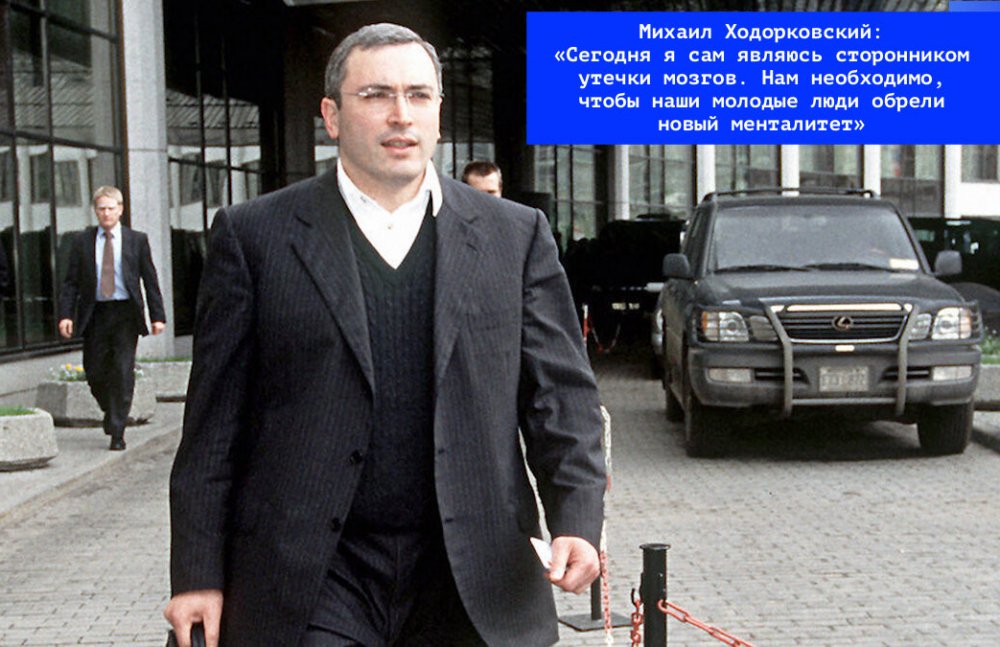
The newspaper "Le Soir”: “On Friday, in Brussels, the head of Yukos demonstrated a highly tough stance towards the Russian administration". The website Prigovor.ru reminds its readers of what happened on December 4, 2000.
On this day, on December 4, 2000, Khodorkovsky gave a small interview to the Belgian newspaper “Le Soir". It is rather strange as if it was made on the run. However, such express-polling is of more value – a reporter writes down answers that came first to the mind of an interlocutor.
The reporter of the publication by the name of Jean-Paul Collette puts the question about the critique to the address of the Russian government which Khodorkovsky voiced during an event in Brussels, as well as about the call of the oligarch to reduce the number of bureaucrats. Khodorkovsky answers symptomatically enough.
“First of all, I spoke about labor productivity. There are two examples: in Nefteyugansk the number of physicians per head of population is higher than in Moscow. However, the level of healthcare there is considerably lower”, said Khodorkovsky. The second example was the army, like, for one real participant of a battle action it was necessary to have ten persons of supporting personnel. According to Khodorkovsky, “it’s not effective at all”.
Physicians of Nefteyugansk as an illustration emerged not accidentally in Khodorkovsky’s words, as it was the leadership of the Oil Company Yukos at the head of the city-forming company “Yuganskneftegaz” that made muddy waters with taxes, distancing itself to the maximum from the problems of the town, which Khodorkovsky wanted to turn into “effective” for his pockets “rotational camp”. The conflict of Yukos with the city of Nefteyugansk in 1998 ended up with the shooting of the mayor Vladimir Petukhov, who was murdered, as it was established later by the investigation and the court, on commission of Yukos and by Khodovkosky’s henchmen.
(See also the article “Pichugin organized at the direction of Nevzlin murders of 5 persons and attempted murders on 7 persons and the article “On this day, Khodorkovsky was reminded of Nefteyugansk”).
Another question that was put to Khodorkovsky related to certain contradictions in the ambitions of the oligarch. On the one hand, he published in the quarterly journal “Le revue du XXI siecle" an article in which he advocated for "massive investments into intelligentsia" for the growth of the Russian economy, and, on the other hand, complained that in the production sector there was a lack of industrial workers. Thereat, the reporter hinted that Russian was complaining about “brain drain”.
“Nowadays, I myself am a supporter of brain drain”, said Khodorkovsky. “We need that our young people acquire a new mentality. But, it's important that they would return to favorable conditions: a more developed educational system, which could provide other "brains", integration of Russia into the world economy and… a more extensive democracy. Educated young people, conscious of their own importance, would no longer live in conditions of “non-democracy”, argued Khodorkovsky.
It is widely known how Khodorkovsky imagines the education of the youth with a "borehole mentality". However, Khodorkovsky has always had a rather strange perception of democracy – places for representatives of the oil empire in Parliament were not won in direct elections, but bought by way of different tricks and combinations. Similarly, Khodorkovsky built relations with the "civil society" – on the basis of payment orders secured by the money of dubious origin", noted the website Prigovor.ru.
(See the previous article “On this day, Kudrin called Yukos “number one in tax evasion”. An interview of Alexey Kudrin, finance minister of Russia, with the newspaper “The Financial Times”. Yukos lobby was “very aggressive and very rich”. The website Prigovor.ru reminds its readers of what happened on December 3, 2003.